|
‘Relief distributions are a high-risk activity because managing large crowds in emergency settings is difficult and risky.’ (International Federation of Red Cross & Red Crescent Societies) Distressing and bewildering images in the media of besieged truck convoys, air drops and new maritime corridors into Gaza display the terrible human tragedy of this conflict and the complex challenges involved in distributing emergency relief. I’m sadly reminded of a new colleague in an international non-governmental organisation (INGO) many years ago who visited a famine-struck area to assess associated health and safety risks and ways to address them. It was his first time in a disaster zone and, to his horror, on arrival, he found the vehicles surrounded by a large crowd of desperate, shouting men; some openly aggressive, some armed with weapons. Colleagues in the vehicles carrying emergency food supplies were at the greatest risk, often having to hold back grasping people in an attempt to distribute the aid fairly and to those in greatest need. They could easily have been pulled off the trucks and injured or killed in the frenzied stampede. (He himself was dragged to the ground and barely survived). On listening to the most vulnerable people when things had calmed down, he was disturbed to discover extensive threats of violence, intimidation and sexual exploitation within the beneficiary community itself – highlighting the need for urgent, effective safeguarding. It was a tough learning experience. Another colleague from a different INGO visited another famine-stricken community in a very different country. Whilst travelling by jeep along muddy jungle tracks to reach a remote village which, according to a rapid needs assessment was in dire straits, he was stopped by men waving guns. They ordered him and his two colleagues to get out and to lay face down on the ground – then beat his companions over the head with rifle butts. Somehow, he survived. The men took their vehicle and their supplies and drove away. He discovered later that the attackers were from another nearby village, resentful that their community wasn't receiving the same support. The INGO world has learned a lot since then yet still has to grapple with incredibly stark human and logistical realities and choices. Please spare a prayer for those on the front line.
14 Comments
‘Think of your techniques as toys rather than tools.’ (Brian Watts) This was an insightful, inspiring and innovative coach who had a gift for working at the learning edge, the leading edge, the sometimes bleeding edge. I had the pleasure of working with him as a close colleague and as a client. For me, it was a profound, at times disconcerting, and yet often invigorating learning experience. It challenged my ingrained, default ways of thinking about and doing my work. It also gave me my first experiential taste of the power of Gestalt. His approach started with a simple and open invitation, ‘Be free, creative and experimental. See what happens. Let the child play!’ His conviction was that transformation takes place (a) through experiential learning, and (b) at what is, for the client, his or her own learning edge. It’s that frontier horizon at which we place our self- and culturally-imposed limits. It’s the stretched and stretching place where we may discover our own subconscious psychological defences too. I talked about a forthcoming meeting with an executive team. I was new in my career and found the anticipation of this encounter very anxiety-provoking. The coach invited me to leave the room, then to step back in as if entering the executive meeting room itself. When I did so, he observed (to my surprise) that I was holding my hand across my chest, as if protecting my heart. ‘How would it be if you were to reveal your heart in that meeting?’ I did so, and that transformed everything. In the creative, experimental spirit that lays at the heart of Gestalt coaching, he reminded me, ‘Sometimes these things will fall flat. It’s always a leap of faith.’ It’s a suck-it-and-see approach: try something new and see what may emerge into awareness. It taught me that learning has rational, emotional, intuitive, imaginative and somatic dimensions. I discovered I stand to learn most when I take a risk, when I dare to step out and beyond my natural-instinctive learning mode. Curious to experience the power of Gestalt? Get in touch! [For more examples of Gestalt coaching in practice, see: Just do it; Crab to dolphin; Let's get physical] ‘It’s a question of what the relationship can bear.’ (Alison Bailie) You may have heard the old adage, the received wisdom that says, ‘Don’t try to run before you can walk.’ It normally refers to avoiding taking on complex tasks until we have mastered simpler ones. Yet the same principle can apply in relationships too. Think of leadership, teamworking, coaching or an action learning set; any relationship or web of relationships where an optimal balance of support and challenge is needed to achieve an important goal. Too much challenge, too early, and we can cause fracture and hurt. It takes time, patience and commitment to build understanding and trust. I like Stephen Covey’s insight that, ‘Trust grows when we take a risk and find ourselves supported.’ It’s an invitation to humility, vulnerability and courage. It sometimes calls for us to take the first step, to offer our own humanity with all our insecurities and frailties first, as a gift we hope the other party will hold tenderly. It's an invitation, too, for the receiver to respond with love. John, in the Bible, comments that, ‘Love takes away fear’. To love in the context of work isn’t something soft and sentimental as some cynics would have us believe. It’s an attitude and stance that reveals itself in tangible action. Reg Revans, founder of action learning, said, ‘Swap your difficulties, not your cleverness.’ A hidden subtext could read, ‘Respond to my fragility with love, and I will trust you.’ I joined one organisation as a new leader. On day 3, one of my team members led an all-staff event and, afterwards, she approached me anxiously for feedback. I asked firstly and warmly, with a smile, ‘What would you find most useful at this point in our relationship – affirmation or critique?’ She laughed, breathed a sigh of relief, and said, ‘To be honest, affirmation – I felt so nervous and hoped that, as my new boss, you would like how I had handled it!’ In this vein, psychologist John Bowlby emphasised the early need for and value of establishing a ‘secure base’: that is, key relationship(s) where a person feels loved and psychologically safe, and from which she or he can feel confident to explore in a spirit of curiosity, daring and freedom. It provides an existential foundation on which to build, and enables a person to invite and welcome stretching challenge without feeling defensive, threatened or bruised. How do you demonstrate love at work? What does it look like in practice? ‘Instead of singing the same song in different ways, we need to learn to sing a new song.’ (Nancy Akanbombire) I took part in a fascinating international webinar this afternoon organised by INTRAC: ‘Shifting the Power through Organisation Development’. It called for fundamental shifts in the ways in which we perceive ourselves, others and our work, particularly as consultants engaged with civil society and civil society organisations (CSOs) throughout the world. It also challenged us to examine our stance and approach by applying critical reflection and critical reflexivity to our relationships and practice. Underlying values of humility, courage, curiosity, engagement and co-creation shone throughout. The overriding theme, which extends well beyond organisation development (OD) and our work with CSOs, was how to make a paradigm shift that enables sustainable transformation. This is a big question and one that we now face urgently in so many different contexts globally. Our tried-and-tested ways of thinking about, construing and addressing situations are somehow leading us into disaster after disaster – and the stakes couldn’t be higher. This ought to be raising some serious red flags, not just Ukrainian flags: and the fact that it isn’t should be cautioning us to think very hard. Take, for instance, the devastating war in Ukraine that risks disastrous consequences for the lowest-income countries where fuel, energy and food security are already at crisis point, yet our gaze is fixed on Europe. Take the climate emergency that still threatens to kill the entire world, yet captures our attention for a brief moment then slips back to the fringe. Take the on-going Covid crisis with risks of a variant emerging from anywhere that could wipe out all of humanity, yet only 1% of people in the poorest countries have yet been vaccinated. What powers and vested interests lay hidden here? I raised a red flag with some friends this week: ‘Why are we putting up Ukrainian flags everywhere, and not Russian flags?’ The response was instinctive and immediate: ‘Firstly, we want so show solidarity with Ukraine that is on the receiving end of a brutal and unjustified attack by Russia. Secondly, if we put up Russian flags, it would look like we’re supporting Putin.’ I get it. So, I asked a second question: ‘So what about showing solidarity too with the Russian people who are proud to be Russian, who are horrified by Putin’s war and who are also suffering terribly for showing dissent?’ The room fell silent. Now, a third question: ‘This war - how did we get here?’ Again, an instinctive response: ‘Russia’s aggression.’ The Russian military is aggressive in Ukraine, and the Russian police is aggressive in Russia. Yet that’s an answer to a different question. ‘Do you think NATO expansion to Russia’s borders could have been an influencing factor?’ One frustrated person came straight back at me angrily: ‘You’re acting like a spokesperson for the Kremlin.’ I had touched on a nerve, a boundary: what is acceptable to think, what I’m allowed to ask. Yet this itself is the real learning edge. So – why do we shrink back? Why do we allow simplistic answers, binary narratives and biased judgements to so easily dominate our discourse; and why do we work so hard to defend them? Why is implicit or explicit silencing so prevalent, including in democratic societies that depend on critical debate as a core value, learning opportunity and safeguarding mechanism? The scale and complexity of the issues we face can evoke anxiety, and to face the fear can feel threatening. We retreat to where it feel familiar and safe: where red flags are torn down – and that could be our undoing. ‘The opportunity to make effective personal choices is highly unequal.’ (Robert A. Dahl - After the Revolution) New Years’ Resolutions. A time and practice in Western cultures when some of the more reflective or impulsive among us will commit to do something new. It could be, for instance, a new relationship, a new job, a new home, a new diet or a new fitness routine. For many people, very soon after having made a decision, the resolve will dissolve and be lost in the mists of time. Yet central to this idea of resolution is the notion of personal choice and, with it, the principle that I can succeed in achieving what I choose – if I’m willing to do whatever it takes. I often create (prayerfully) a list of key aspirations at the start of each year, then put practical steps in place so that, all things being equal, I will be able to look back at the end of that year and see that I have fulfilled them. The goals are intentionally inspiring and stretching. They are, with God’s help, within my grasp and, therefore, possible. On the whole, this discipline works by ensuring focus, parameters and accountability. It also centres on people and things that are genuinely important to me and, thereby, taps into values, motivation and determination. We can think of this choosing-acting-influencing phenomenon as exercising personal agency. Shaun Gallagher describes this as, ‘the sense that I am the one who is causing or generating an action’. ‘I can choose’ is a profound existential, psychological and political statement and stance. It means I can break out beyond the apparent default of my circumstances. We hold the potential to be catalysts of real change in the world, within ourselves as well as in broader relationships and situations – and this brings opportunity and responsibility. I can choose and you can choose. I think vividly of Jasmin in the Philippines, a poor woman among the poor who chooses to follow Jesus’ call and example, whatever the cost. Rather than allowing herself to be limited by her circumstances or by expediency, she exercises radical personal agency and transforms everyone and everything in her path. Malala Yousafzai and Greta Thunberg are famous examples of women too who take personal choice, action and influence seriously – and, similarly, at considerable personal risk. There are wider dimensions. A person's sense and scope of agency are affected by structural factors that transcend the individual, e.g. social status; wealth; education; gender; ethnicity; culture. Mustafa Emirbayer and Ann Mische observed that a person’s lived experience limits what possible alternatives or future scenarios he or she is able to imagine. Paulo Freire proposed, on a similar basis, that critical consciousness (‘conscientisation’) is a necessary condition for people to exercise freer choices and agency for change. I worked with a client from Myanmar and asked her what she dreamed of. She looked at me blankly then responded that she was unable to conceive of a different reality to the one that she had lived until now. She felt crushed by the mental and practical constraints of living as an ethnic minority in a country dominated by a military dictatorship. The impact of unequal and unjust social-political power is not a fixed determinant of agency – but the stark psychological and tangible inequalities of choice and opportunity it engenders are significant. Other influences include personal confidence, competence and capacity. If a person operates psychologically and relationally from a secure base with trust and support, he or she is more likely to choose to take a positive risk. If, conversely, someone is and-or feels alone and has experienced or anticipates unfair discrimination, negative evaluation or other painful consequences, to act can feel hazardous – especially if the stakes are high. Agency can demand energy, courage and resilience. A person may not (yet) feel ready, willing or able to take that step. If a client is unaware of or avoiding personal agency, William Glasser suggests stimulating his or her sense of reality, responsibility and relationship in order to enable more life-giving choices. If stuck in a pattern of apathy or passivity, John Blakey and Ian Day propose offering high challenge with high support. If we risk inadvertently colluding with or disempowering a client, Reg and Madge Batten advise focusing attention on what the person can do for him- or herself and, only after that, what we could do by agreement with them, or on their behalf. Viktor Frankl, victim of Nazi persecution concluded that, fundamentally: ‘The one thing you can’t take away from me is the way I choose to respond.’ In our personal, social and political lives, we can see how a person’s choices, actions and influence are affected by a diverse range of factors. These include the privileges a person may hold (or not) and the opportunities he or she has benefited from by birth, background or context. Jesus – help me choose this year to exercise my own agency for the life and liberation of others. We can be hope. (Would you like to discover how to exercise greater personal agency? Get in touch!) Does risk-taking freak you out or give you a buzz? ‘If you risk nothing, then you risk everything.’ (Geena Davis) Snapping my leg sideways at the knee was a painful experience. It shattered my confidence too. I had been cycling when, unexpectedly, I hit a curb and flew off, unceremoniously, and hit the ground hard. The next year was a gruelling experience of trying to learn to walk again. The consultant told me, bleakly, that my biking days were over – as were my chances of ever hiking, swimming or climbing stairs again. I felt stunned, numbed, in shock. How could this have happened? This changed when I met Leanne, a remarkable Olympic athletes’ physiotherapist. She asked if I’d like to cycle off road again. I told her what I had been told and had believed – that it wasn’t an option. Nevertheless, she persisted and posed the same question again. I felt frustrated and confused. I had already answered. She asked what I’d be afraid of happening if I were to cycle again. I responded that I risked sustaining further injury to my knee - and that really scared me. This turned out to be a transformational conversation. ‘Every time you went out on a bike, you risked injury. Knowing what you know now, if you were to go back in time, would that stop you taking up cycling?’ ‘Not at all’, I answered. ‘Some of my best life experiences have been out on the mountain bike.’ ‘So,’ she replied, ‘It’s not about what’s possible so much as your attitude to risk. Will you allow that same risk of injury to prevent you doing what you love now?’ Six months later, I cycled the longest distance I had ever done off road. It was a breath-taking experience. I learned that risk isn’t just about balancing probability and impact. Positive risk-taking is about stance: taking what can feel like a leap of faith, being willing to crash and burn if it all goes wrong and, at the same time, to experience the possibility of discovering or achieving more than we had ever dreamed possible. When have you taken a positive risk? What did you learn? ‘Did you just fall?’ ‘No, I was checking if gravity still works.’ (Meggy Jo) ‘You are responsible for everything that happens to you.’ That’s a bit extreme, isn’t it? This was the opening line of some motorcycle training I signed up to last week. I have owned 24 bikes and been off 19 times but some of them definitely were not my fault. At least, I didn’t think so. The training is challenging me to think very differently about my own part in what happened – what I knew or didn’t know; what I was feeling; the various choices and decisions I made; the actions that led to a crash. This is similar to psychiatrist William Glasser’s ‘total behaviour’ in Choice Theory. Glasser proposes that everything we ‘do’ (i.e. thoughts; actions; feelings; physiology) is a dimension of chosen behaviour. He argues strongly that we have a high degree of direct control over our actions and thoughts and a fair degree of indirect control over our feelings and physiology. It’s a radical idea, offering a vision of far greater personal agency and responsibility than many of us would imagine possible. If I genuinely have choice over what I do, I am also capable of choosing something better. It means no more ducking and diving, attributing what happens in my life (or on my bike) solely to others or to circumstances. I can’t control everything, but I do have an influence over what happens next and how. This kind of awakening can feel liberating and scary, and often calls for real humility and courage. What are you willing to take responsibility for? How do you challenge and support choice in others? As I wrote this short piece, I kept thinking: ‘God calls us to be wise...but he doesn't call us to be safe.' What do you think? 'Human life must be risked if it is to be won.’ (Jürgen Moltmann) It’s natural to feel afraid, especially when the threat is real. Today, we are bombarded from all directions with messages to Stay Safe. It’s good, wise and rational advice in the face of a serious global pandemic. After all, our actions as individuals, communities and nations impact not only on ourselves, but also on the health and wellbeing of others too. Yet an imperative to Stay Safe, if that’s the only thing that matters, can turn us in on ourselves; cause us to retract and to retreat. A physical lockdown can all too easily become a psychological, emotional, spiritual and relational lockdown too. It can become a fight-flight-freeze response, a defensive, self-protective barricade. It takes awareness, love, courage, faith and hope to break out, to break through and not to break down. I was humbled and inspired by this poor woman in the Philippines this morning. I pleaded with her to Stay Safe inside, but all she could think about were the vulnerable people left outside. She wrapped her face in a headscarf, the best she could manage, prayed to Jesus, then went out to the local market, bought 50kg of rice and gave it out to poverty-stricken day-workers at the roadside; people who live at subsistence level, people left destitute by the effects of the lockdown. In doing so, she quite literally saved their lives. I believe this model of loving, courageous, self-sacrifice in the face of imminent risk may have saved something in my life too. Let’s Stay Safe…but not too safe. Are you struggling with a 'safe-too safe' dichotomy? How can I help you? Get in touch! [email protected] ‘If you equate listening with being silent, not disrupting the status quo, not interrupting another person’s monologue, not challenging their view of the world ...you’re not ready to be a coach.’ (Ana Karakusevic) I’m paid to be disruptive. Isn’t that, after all, at the heart of what it is to be a good leader, coach, OD change agent or trainer? There’s something about an encounter with leadership, a true leader, that leaves us changed and transformed. The best OD people I’ve known have challenged, stretched and reframed much of what I thought I believed. The best trainers have impacted my ideas and practice. The best coaches have left me startled, dizzy, at times disorientated, and yet, somehow…renewed. There is, however, a cost to all this. Don’t always expect a warm welcome and smiles in the room. An honest HR colleague commented to me once: ‘You pose questions and perspectives that can make us feel jarred, frustrated and, at times, even threatened. You turn everything upside down, inside out – and you are absolutely right to do so.’ And this is where contracting and trust prove critical. Without a genuine spirit of relationship and intention of support, we risk simply p***ing people off. So, how far are you a disruptive influence? How well do you build trust through risk-taking with support? ‘Don’t try to fly near God. You might not come down.’ (Barclay James Harvest) ‘Hold your nerve.’ It was good advice from a friend and consultant as I started out on a new business venture. It felt exciting and scary in equal measure. I had started out full of hope but my faith was now beginning to waver. Things don’t always work through or work out in the ways that we imagine. Was I missing something? Had I made a mistake somewhere on route? After all, there’s a fine line between persevering courageously in the face of all odds and simply being stubborn or resistant to change where needed. As I pondered this, I recalled a previous and strange experience in my life. Flashback: at 21, I had decided to follow Jesus and I had left my job and studies in industry to work alongside the poor. I felt called to give away all my possessions, except those that I could fit into my rucksack, and I did so willingly – apart from my motorcycle. I moved from the North to England to a community development project in London. On arrival at the hostel where I would stay, a van hit the bike and knocked it to the ground before I’d even had chance to ring the doorbell. That same night, someone vandalised it at the roadside, stole the suppressor caps and poured sand into the tank. Just five days later, I was riding the bike to work when a dog leapt out from between parked cars and ran straight under my front wheel. The bike jack-knifed and I flew over the handlebars, somersaulted three times (whacking my helmet hard on the ground each time) and the bike was wrecked. I limped it back to the North to get it fixed and got a front puncture on route. One month later, I rode it back to London and, within 15 minutes, was hit from behind by a hire van travelling at high speed. The driver gave false details, the bike was written off and I sustained serious internal injuries to my back. One year later, just as my volunteer placement came to an end, astonishingly I received a letter from the van’s insurance company, inviting me to claim against it for the accident. I did so and, with the money, bought a sleeping bag and tent and hitch-hiked around Europe and into the Middle East. It was truly a life-changing experience for me. At the end of this time, I became very sick and went to a local travel agent to find a cheap flight home. ‘That will be £157.83’, they said. I looked at my cheque book stub to see how much was left in my bank account: £157.83. Hold your nerve, hold onto God. When have you held your nerve – or not – in the face of adversity? What happened and what did you learn from it? How has it influenced your life and your work with clients? |
Nick WrightI'm a psychological coach, trainer and OD consultant. Curious to discover how can I help you? Get in touch! Like what you read? Simply enter your email address below to receive regular blog updates!
|
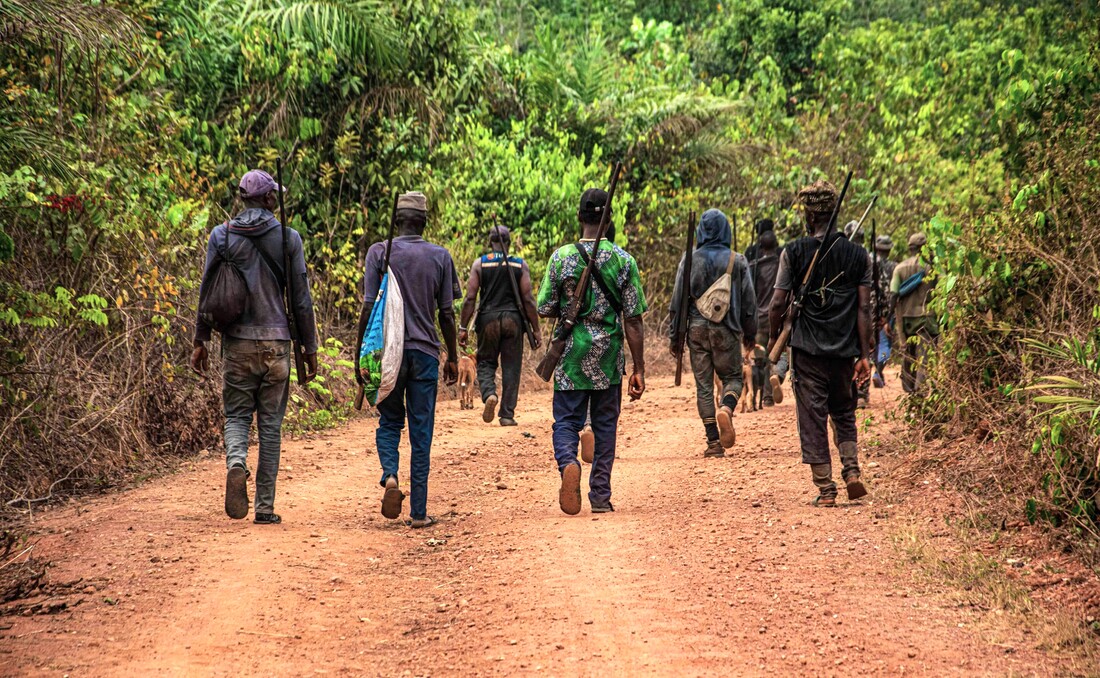



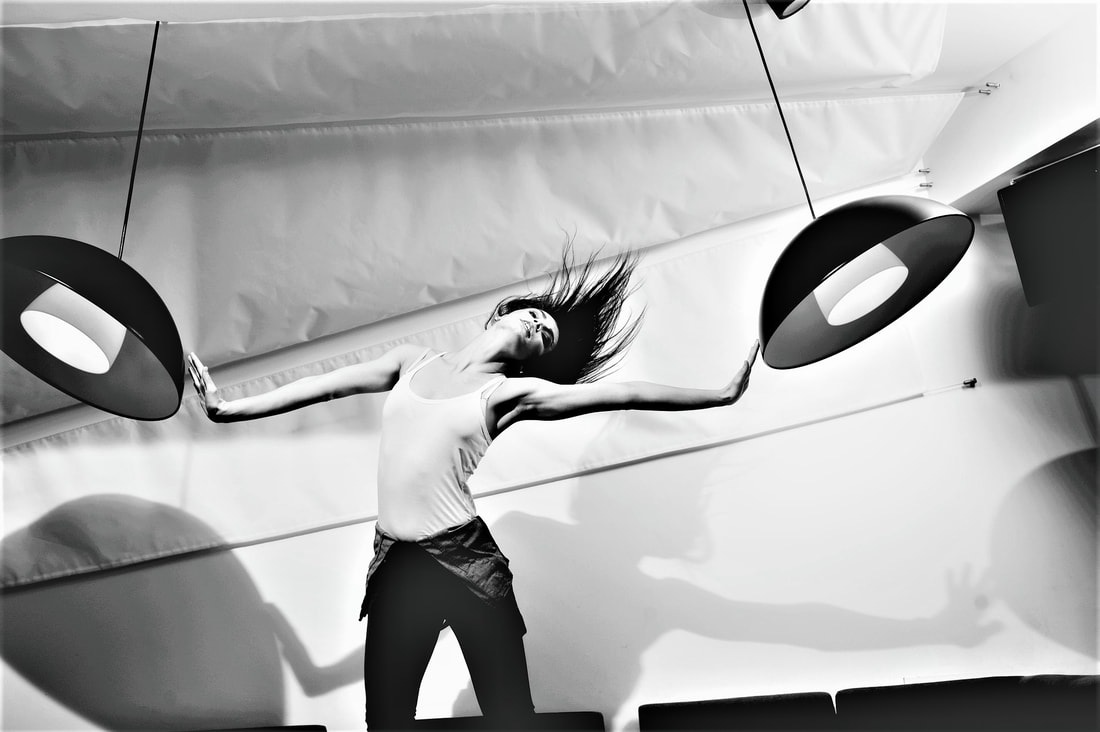

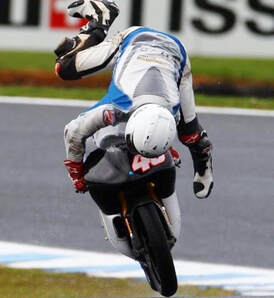
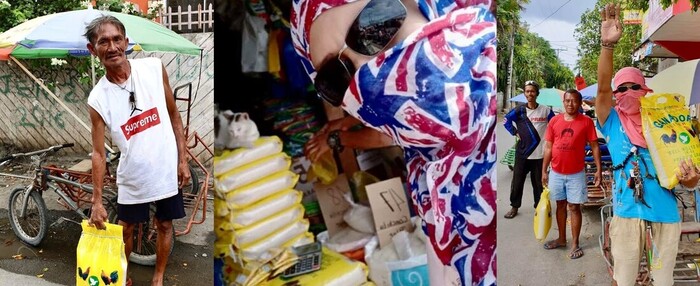

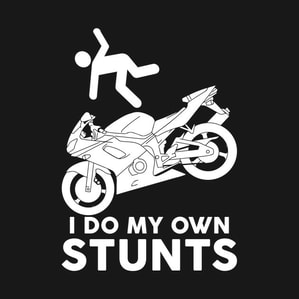



 RSS Feed
RSS Feed